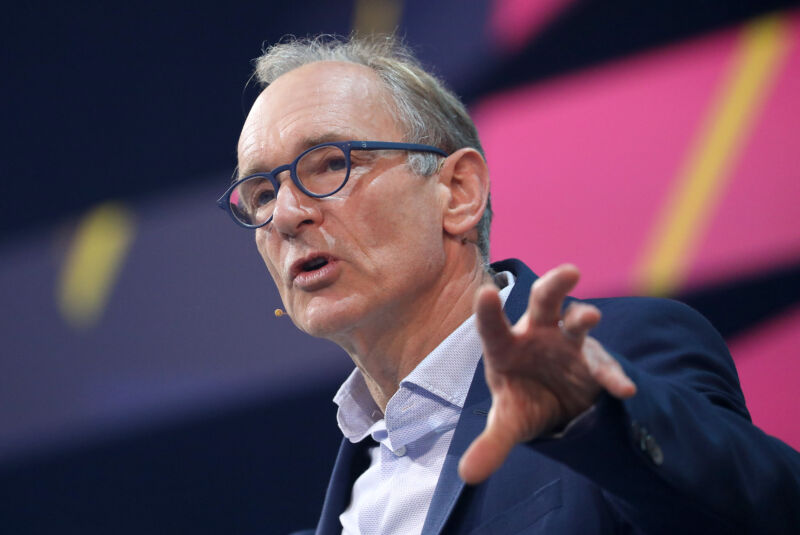
Google says it would have "no real choice" but to shut down its search engine in Australia if Australia passes a new law requiring Google to pay news sites to link to their articles. This would "set an untenable precedent for our business and the digital economy," said Google's Mel Silva in Friday testimony before the Australian Senate.
News organizations around the world have been struggling financially over the last decade or two. Many have blamed Internet companies like Google and Facebook that—in their view—have diverted advertising revenue that once went to news organizations. Some in the news industry argue that Google benefits from including news stories in its search results and should compensate news sites for the privilege of doing so.
So last year, the Australian Competition and Consumer Commission proposed a new mandatory arbitration process designed to correct a supposed power imbalance between tech giants and Australian news sites. Under the new framework, news sites can demand that tech platforms (initially Google and Facebook) pay them for linking to their stories. Google and Facebook are required to negotiate "in good faith" toward a payment agreement.
You might think that Google would simply stop linking to Australian news sites. But that won't be allowed under the ACCC proposal. New non-discrimination rules require Google to treat sites the same whether or not it has to pay to link to them.
Australia's proposal has provoked a broad backlash from advocates of the open Web—including the inventor of the Web itself. In a letter to the Australian Senate earlier this week, Tim Berners-Lee argued that Australia's proposal would set a damaging precedent.
"To my knowledge, there is no current example of legally requiring payments for links to other content," Berners-Lee said. "The ability to link freely—meaning without limitations regarding the content of the linked site and without monetary fees—is fundamental to how the Web operates."
Google is under pressure around the world
Australia isn't the only country where Google is facing increasing pressure to pay news sites. This week, Google announced it had negotiated a framework to pay French news sites for the right to include them in its search results.
Technically, the French law is different from Australia's proposal. In its law implementing the 2019 EU Copyright Directive, France required Google to pay for the use of news "snippets" in search results. Google stopped using the snippets to avoid paying. But then France's competition authority objected, arguing that refusing to use snippets—and pay news sites for them—was an abuse of Google's market power. Despite reservations about the French law, Google announced an agreement with French news organizations this week.
As we wrote on Thursday, France's success provides a roadmap for other European countries that want to force Google to pay their news organizations, too. And it may undermine Google's bargaining power in Australia as well. In Australia, Google has portrayed free links as a principle so sacrosanct that it would shut down its search engine before agreeing to pay. But in France, Google seems to have accepted a similar arrangement without shutting down its French search engine. (Update: See the Google statement below for details on this.)
This may be because France has more leverage than Australia. Not only is France a larger country than Australia, but France's membership in the EU may have given it added leverage.
On the other hand, it may be that the specifics of the Australian proposal make it more offensive to Google. One area of concern for Google is the use of baseball-style arbitration rules. Under this bargaining system, each side (in this case Google or Facebook on one side and a news publisher on the other) submits a single proposal to a neutral arbitrator. The arbitrator must then decide which of the two proposals is more "reasonable" and adopt it. In theory, this structure gives both sides an incentive to meet the other party halfway. But Google worries that the system will be based on "biased criteria" and will create "unmanageable financial and operational risk for Google."
Australia's proposal requires Google to notify Australian news sites of changes to its search algorithm 28 days in advance. Google has traditionally kept details about its algorithm secret and argues that disclosing this information to Australian news publishers would give those publishers an unfair advantage over other websites.
The new Australian law would also require Google to share traffic data with news sites, raising concerns about user privacy.
In any event, Australian officials don't seem worried about Google's opposition.
"We don’t respond to threats," said Australian Prime Minister Scott Morrison on Friday. "Australia makes our rules for things you can do in Australia."
Update, January 24: Google sent us the following statement by email:
Our issues with the current version of the Australian Code are not about money, we’re willing to pay. It's about being asked to pay for links and snippets which EUCD (and the French transposition) does not. This is where we draw the line. Links and snippets are the building blocks of the free and open web. To pay publishers in Australia, we’re proposing to do the same thing we’re doing in France - to pay publishers for value with News Showcase. The difference would be that News Showcase would operate under the Code, that means publishers can go to arbitration on News Showcase to solve any disagreements.
reader comments
410